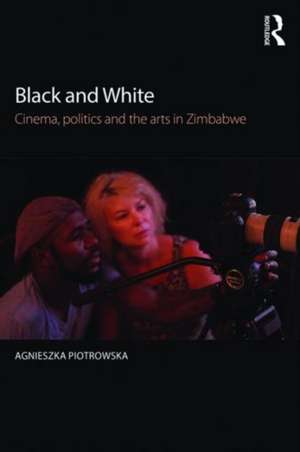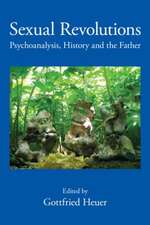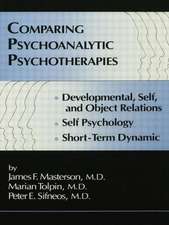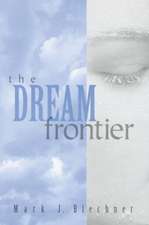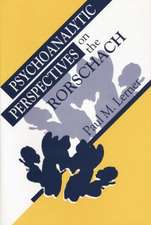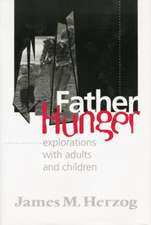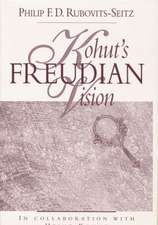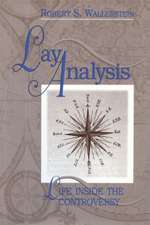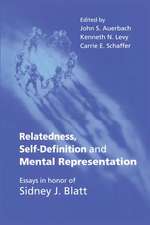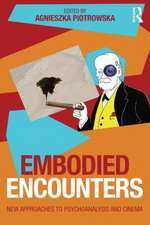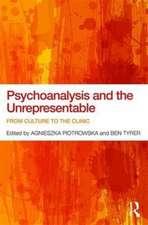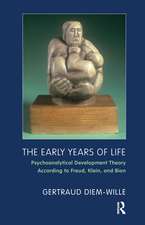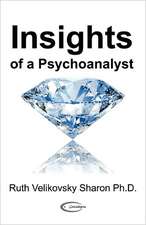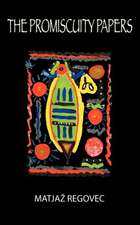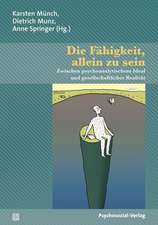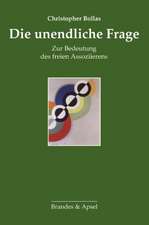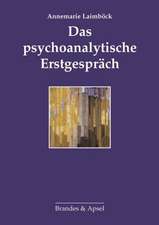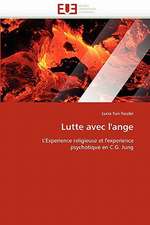Black and White: Cinema, politics and the arts in Zimbabwe
Autor Agnieszka Piotrowskaen Limba Engleză Paperback – 11 oct 2016
Piotrowska focuses in particular on the Harare International Festival of the Arts (HIFA) as well as the cinema, featuring the work of Rumbi Katedza and Joe Njagu. Her personal experience of time spent in Harare, working in collaborative relationships with Zimbabwean artists and filmmakers, informs the book throughout. It features examples of their creative work on the ground and examines the impact it has had on the community and the local media. Piotrowska uses her experiences to analyse concepts of trauma and post-colonialism in Zimbabwe and interrogates her position as a stranger there, questioning patriarchal notions of belonging and authority. Black and White also presents a different perspective on convergences in the work of Doris Lessing and iconic Zimbabwean writer Dambudzo Marechera, and how it might be relevant to contemporary race relations.
Black and White will be intriguing reading for psychoanalysts, psychotherapists and psychotherapeutically engaged scholars, film makers, academics and students of post-colonial studies, film studies, cultural studies, psychosocial studies and applied philosophy.
| Toate formatele și edițiile | Preț | Express |
|---|---|---|
| Paperback (1) | 301.15 lei 6-8 săpt. | |
| Taylor & Francis – 11 oct 2016 | 301.15 lei 6-8 săpt. | |
| Hardback (1) | 1090.18 lei 6-8 săpt. | |
| Taylor & Francis – 11 oct 2016 | 1090.18 lei 6-8 săpt. |
Preț: 301.15 lei
Preț vechi: 363.22 lei
-17% Nou
Puncte Express: 452
Preț estimativ în valută:
57.62€ • 60.33$ • 47.68£
57.62€ • 60.33$ • 47.68£
Carte tipărită la comandă
Livrare economică 05-19 aprilie
Preluare comenzi: 021 569.72.76
Specificații
ISBN-13: 9781138817869
ISBN-10: 1138817864
Pagini: 238
Ilustrații: 21
Dimensiuni: 156 x 234 x 17 mm
Greutate: 0.36 kg
Ediția:1
Editura: Taylor & Francis
Colecția Routledge
Locul publicării:Oxford, United Kingdom
ISBN-10: 1138817864
Pagini: 238
Ilustrații: 21
Dimensiuni: 156 x 234 x 17 mm
Greutate: 0.36 kg
Ediția:1
Editura: Taylor & Francis
Colecția Routledge
Locul publicării:Oxford, United Kingdom
Public țintă
Postgraduate and ProfessionalCuprins
Foreword by Diana Jeater. Acknowledgements. On What Remains and Practice Research and Zimbabwe. On Non-Touching and Non-Speaking in Post-Colonial Context. Mourning and Melancholia in the Harare International Festival of the Arts. Lovers in Time: Practice Research in the Times of Patriotic Journalism. Zimbabwean Cinema and Joe Njagu’s Lobola (2010). Gender and Rumbi Katedza’s Playing Warriors (2011). Appendix. Bibliography. Index.
Notă biografică
Dr Agnieszka Piotrowska is an acclaimed theorist and an award winning documentary filmmaker, who uses psychoanalysis and philosophy alongside her creative practice research. Her current work, both practice and theory, focuses on post-colonial relationships in Zimbabwe and includes an internationally acclaimed documentary film, Lovers in Time or How We Didn’t Get Arrested in Harare. She is the author of Psychoanalysis and Ethics in Documentary Film, editor of Embodied Encounters: New Approaches to Psychoanalysis and Cinema, and co-editor of Psychoanalysis and the Unrepresentable, all published by Routledge. She is a Reader in Film Theory and Practice at the University of Bedfordshire, UK.
Recenzii
‘Artist, activist, writer, academic: Agnieszka Piotrowska is having a powerful influence on the practice and study of documentary film. In this book, she focuses compellingly on the fraught and emotionally and culturally rich terrain of Zimbabwe. Piotrowska’s engagement with Zimbabweans in creating film, theatre and poetry is intense, cunning, comic and tragic in turns; and it raises critical issues around gender and postcoloniality that she refracts through a set of powerful psychosocial and personal lenses. Black and White is a vital intervention into racialised and sexual politics and an important landmark in the literature on culture and film.’ - Stephen Frosh, Professor of Psychology, Birkbeck College, University of London, UK
‘"Trauma", a wise woman once said, "is like opening the kitchen cupboard, and everything falls out." Europe’s dealing with post-colonial Africa continues to be traumatic for all sides, and in many an encounter with the people and the societies shaped by this legacy, "everything falls out": race, gender, black, white, Orientalism, self-exoticism, murder, silence, laughter, music, love, friendship, movie-making.
Agnieszka Piotrowska is not afraid to open that cupboard, on her various actual and metaphorical journeys to Harare and when meeting with Zimbabwe’s post-independence generation of gifted artists, self-assured intellectuals and brave journalists as well as literary works and cinema. She has a wonderful way of applying her sharp analytical mind, her practical knowledge, and her creative talents to putting some order into the complexities, making even the most intractable challenge loosen up a little and dance to her unique writerly tune.
The volume is an indispensable contribution to post-colonial studies and invaluable for film scholars and makers. As an exemplary case study of how practice research can shape theory, Black and Whitewill set new standards.’ - Thomas Elsaesser, Columbia University, New York, USA
‘Agnieszka Piotrowska’s book is well-researched, eloquently presented and passionately argued. Her brilliant analyses bring to life the Zimbabwean film scene which has hitherto been under-researched. She expertly negotiates her role as a "woman, as a scholar and as a practitioner, as a British subject and a Polish". Ultimately what is on offer is a meticulous, riveting and most unique account of film in Zimbabwe - in a local and global context - complete with challenges in the context, lively voices of her informants accompanied by her own original, forceful and unmistakable authorial tone. It is a bold statement which puts her own practice research at its heart. The volume will re-define the role of a researcher and an artist in the postcolonial and film studies. Piotrowska’s compelling account enters a new territory of interrogating the role of the arts and the media in a political transformation.’ - Dr Winston Mano, Director of Africa Media Centre, University of Westminster, UK
‘Agnieszka Piotrowska’sBlack and Whitebreaks new ground as a monograph that positions creative practice at the centre of its research enquiry. For Piotrowska, emotion and encounter are knowledge generative and, as such, they gesture politically in ways that she considers specifically ‘feminine’.Black and Whiteanalyses the imbricated processes of making films, poetry, novels and theatre – her own and those of other artists – within the cultural ecologies and economies of contemporary Zimbabwe. The surface subject is race, exposed to the twin critical spectres of psychoanalytic and postcolonial theory.
Piotrowska embraces risk, failure, passion and flux. In presenting her situated knowledge, she is simultaneously open and opinionated, reflexively insightful and impulsive, humane and very human. This book demonstrates with remarkable candour, the richness of what practice research might offer as method, as output, as topic, as public engagement, and as provocation.’ - Roberta Mock, Professor of Performance Studies, Plymouth University, UK
‘Black and White does what an academic text supposedly should not. It exposes its own folly and limitations, it embraces its partiality, and it has a style that on occasion is more anecdotal than analytical. However, not only is Black and White an important first look at contemporary filmmaking in Zimbabwe, but Agnieszka Piotrowska has also written a courageous book that sets a crucial precedent regarding what practice as research can look like in written form. In this regard, Black and White's potential weaknesses are in fact its strengths: it bridges art and academia in ways that reach towards new horizons, while at the same time asking us to re-evaluate our perceptions of Zimbabwe when most media coverage of the country tends to focus only on the negative.’ William Brown, Senior Lecturer in Film, University of Roehampton, UK
‘Agnieszka Piotrowska comes to Zimbabwe as ‘the subject supposed to know’ –a position of privilege, albeit unwanted, stemming from her whiteness, undermined by her gender. She interrogates her own experience, attempting to refuse the place of the knowledge, to engage with what it means to tell a story without claiming to know. Beyond black and white, she peers into the grey – the unrepresentable, coming to the recognition that she cannot know, because knowing is so compromised, that engaging with it is challenging, raw, visceral. That she approaches this not knowing through an arts practice is paramount – it is the work together, the embodied creative work of making, that allows the unrepresentable to begin to make its painful emergence. A brave and important book.’ - Valerie Walkerdine, Distinguished Research Professor, Cardiff University, UK
‘"Trauma", a wise woman once said, "is like opening the kitchen cupboard, and everything falls out." Europe’s dealing with post-colonial Africa continues to be traumatic for all sides, and in many an encounter with the people and the societies shaped by this legacy, "everything falls out": race, gender, black, white, Orientalism, self-exoticism, murder, silence, laughter, music, love, friendship, movie-making.
Agnieszka Piotrowska is not afraid to open that cupboard, on her various actual and metaphorical journeys to Harare and when meeting with Zimbabwe’s post-independence generation of gifted artists, self-assured intellectuals and brave journalists as well as literary works and cinema. She has a wonderful way of applying her sharp analytical mind, her practical knowledge, and her creative talents to putting some order into the complexities, making even the most intractable challenge loosen up a little and dance to her unique writerly tune.
The volume is an indispensable contribution to post-colonial studies and invaluable for film scholars and makers. As an exemplary case study of how practice research can shape theory, Black and Whitewill set new standards.’ - Thomas Elsaesser, Columbia University, New York, USA
‘Agnieszka Piotrowska’s book is well-researched, eloquently presented and passionately argued. Her brilliant analyses bring to life the Zimbabwean film scene which has hitherto been under-researched. She expertly negotiates her role as a "woman, as a scholar and as a practitioner, as a British subject and a Polish". Ultimately what is on offer is a meticulous, riveting and most unique account of film in Zimbabwe - in a local and global context - complete with challenges in the context, lively voices of her informants accompanied by her own original, forceful and unmistakable authorial tone. It is a bold statement which puts her own practice research at its heart. The volume will re-define the role of a researcher and an artist in the postcolonial and film studies. Piotrowska’s compelling account enters a new territory of interrogating the role of the arts and the media in a political transformation.’ - Dr Winston Mano, Director of Africa Media Centre, University of Westminster, UK
‘Agnieszka Piotrowska’sBlack and Whitebreaks new ground as a monograph that positions creative practice at the centre of its research enquiry. For Piotrowska, emotion and encounter are knowledge generative and, as such, they gesture politically in ways that she considers specifically ‘feminine’.Black and Whiteanalyses the imbricated processes of making films, poetry, novels and theatre – her own and those of other artists – within the cultural ecologies and economies of contemporary Zimbabwe. The surface subject is race, exposed to the twin critical spectres of psychoanalytic and postcolonial theory.
Piotrowska embraces risk, failure, passion and flux. In presenting her situated knowledge, she is simultaneously open and opinionated, reflexively insightful and impulsive, humane and very human. This book demonstrates with remarkable candour, the richness of what practice research might offer as method, as output, as topic, as public engagement, and as provocation.’ - Roberta Mock, Professor of Performance Studies, Plymouth University, UK
‘Black and White does what an academic text supposedly should not. It exposes its own folly and limitations, it embraces its partiality, and it has a style that on occasion is more anecdotal than analytical. However, not only is Black and White an important first look at contemporary filmmaking in Zimbabwe, but Agnieszka Piotrowska has also written a courageous book that sets a crucial precedent regarding what practice as research can look like in written form. In this regard, Black and White's potential weaknesses are in fact its strengths: it bridges art and academia in ways that reach towards new horizons, while at the same time asking us to re-evaluate our perceptions of Zimbabwe when most media coverage of the country tends to focus only on the negative.’ William Brown, Senior Lecturer in Film, University of Roehampton, UK
‘Agnieszka Piotrowska comes to Zimbabwe as ‘the subject supposed to know’ –a position of privilege, albeit unwanted, stemming from her whiteness, undermined by her gender. She interrogates her own experience, attempting to refuse the place of the knowledge, to engage with what it means to tell a story without claiming to know. Beyond black and white, she peers into the grey – the unrepresentable, coming to the recognition that she cannot know, because knowing is so compromised, that engaging with it is challenging, raw, visceral. That she approaches this not knowing through an arts practice is paramount – it is the work together, the embodied creative work of making, that allows the unrepresentable to begin to make its painful emergence. A brave and important book.’ - Valerie Walkerdine, Distinguished Research Professor, Cardiff University, UK
Descriere
Piotrowska presents a unique, interdisciplinary insight into the contemporary arts scene in Zimbabwe.
